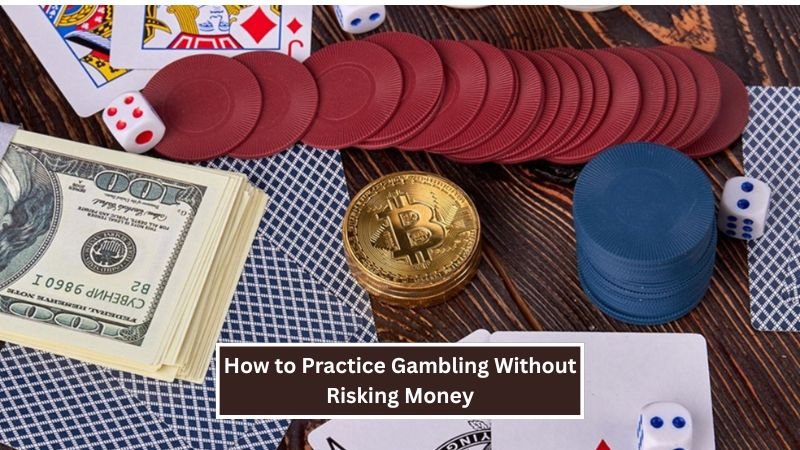
Tipping is a common social practice in many service industries, and the casino world is no exception. When you’re at a blackjack or poker table, the dealer is not just there to deal cards—they create the environment, manage the flow of the game, and ensure fair play. But how much should you tip them? Do you tip at all if you’re losing? What about in high-stakes rooms?
Professional gamblers and seasoned players have their own etiquette and strategies when it comes to tipping dealers. This article explores the norms, unwritten rules, and smart approaches to tipping dealers like the pros do.
Understanding the Role of the Dealer
Before diving into tipping strategies, it’s important to recognize what dealers do. A dealer’s job goes beyond flipping cards or spinning a roulette wheel. They maintain the rhythm of the game, enforce the rules, and sometimes offer helpful advice—especially in friendly environments like smaller poker rooms or lower-limit tables.
Dealers are trained professionals, often working long hours, and they typically earn a significant portion of their income through tips. Much like waiters or bartenders, their base wage is often low, and tipping fills the gap.
Do You Have to Tip the Dealer?
Technically, no—tipping is not mandatory. However, it is customary, and in many casinos, expected. If you’re at a table game for any significant amount of time, especially if you’re winning, not tipping might be seen as poor etiquette.
Still, whether or not to tip, how much, and when are all nuanced decisions. Professional players often approach tipping strategically rather than emotionally.
Why Professionals Tip (and Sometimes Don’t)
Seasoned gamblers know that tipping has both ethical and practical dimensions. Some players tip generously because they appreciate the dealer’s work and want to foster a positive playing environment. Others are more calculated, basing their tips strictly on their winnings and how much they’re playing.
Here’s how professionals often view tipping:
1. To Maintain Good Vibes at the Table
A happy dealer often creates a more relaxed and enjoyable atmosphere. Tipping early in the session can sometimes encourage light-hearted banter and even extra attention to the flow of the game.
2. As a Psychological Tool
Some players believe tipping during a winning streak helps “keep the luck going.” While there’s no statistical backing for this, the ritualistic nature of gambling leads many players to feel that it keeps the energy on their side.
3. When They Win Big
Professionals often tip a percentage of their winnings, especially after big hands or large pots. It’s not unusual to see poker players toss the dealer a chip after scooping up a sizable pot, particularly in cash games.
4. When the Dealer Goes Above and Beyond
In poker rooms or small casinos, dealers sometimes assist players with rules, game etiquette, or even slight strategy hints (especially for beginners). These extra touches can justify more generous tips.
When Pros Might Not Tip
Despite the norm of tipping, there are situations where even seasoned players hold back:
1. When They’re Losing
If a player is down thousands of dollars, it’s understandable they may not feel inclined to tip. While dealers understand that tips are part of the gig, they also realize that not everyone tips every hand or session—especially when things aren’t going well.
2. In Tournament Settings
In poker tournaments, many players don’t tip during the event itself. Instead, casinos usually take a portion of the prize pool (often listed as a “staff fee”) to cover dealers and other staff. If someone wins a large payout, tipping a small portion of their winnings (1–2%) is considered appropriate, but it’s not always expected.
3. In High-Stakes Rooms
At the highest levels of play, especially in private or VIP rooms, tipping practices may vary significantly. Some pros negotiate tipping policies in advance, while others may tip only after massive wins. The logic is that when playing at such high levels, even a modest tip can amount to thousands of dollars—so players may exercise more discretion.
How Much Should You Tip?
There’s no universal rule, but here are some general guidelines based on table game type:
Blackjack, Roulette, or Baccarat
- Occasional Tips: Many players tip $1–$5 every now and then, especially after winning hands.
- Winning Streak: Some players tip consistently after every few winning hands.
- End of Session: A tip of $10–$25 (or more, depending on winnings) at the end of a session is common.
Poker (Cash Games)
- Per Pot: Tipping $1–$5 after winning a medium or large pot is standard.
- Big Pots: For pots over a few hundred dollars, some players tip $10 or more.
- End of Session: Many players tip a final amount as they leave the table, especially after a profitable night.
Poker (Tournaments)
- During the Event: Rarely do players tip during tournament play.
- After Winning: A tip of 1–3% of winnings is standard for top finishers. For example, a $100,000 first-place win might result in a $1,000–$3,000 tip.
Methods of Tipping
Tipping isn’t just about the amount—it’s also about the approach. Here are a few methods pros use:
1. Tipping With Chips
This is the most common way to tip. Players simply slide a chip or two toward the dealer after a win. The chip is typically placed just in front of the betting area so the dealer knows it’s a tip.
2. Betting for the Dealer
In many casinos, players can place a small side bet for the dealer. If the hand wins, the dealer gets both the original bet and the winnings. This is often seen in blackjack, where a player might place a $1 chip next to their main bet as a “dealer’s bet.”
3. End-of-Session Tip
Instead of tipping throughout the game, some players keep track of how much they’ve won and give a lump-sum tip at the end. This can be easier to manage and avoids interrupting the flow of the game.
Tipping Etiquette in Different Parts of the World
Tipping norms can vary by country, and what’s customary in Las Vegas may not apply in Europe or Asia.
United States
Tipping is expected in most U.S. casinos. Dealers rely heavily on tips, and failing to tip can be seen as rude or disrespectful.
United Kingdom
While tipping is appreciated in UK casinos, it’s not as strongly expected. A polite player may tip after a good win or a long session, but consistent tipping is less common than in the U.S.
Macau and Singapore
In many Asian casinos, tipping is either discouraged or outright banned. This is due to strict gaming regulations or cultural norms that frown on tipping. Always check local rules before offering a tip.
Australia and Canada
Tipping in casinos is less common, but still accepted. Players might tip after a big win or good service, but it’s generally not frequent.
Dealer Reactions to Tipping
Most dealers appreciate any tip they receive, regardless of size. It shows respect and recognition of their service. A good tip can also improve your relationship with the dealer, which may lead to a better playing experience. However, it’s worth noting that tipping doesn’t guarantee any special treatment—dealers are trained to be impartial and professional at all times.
In poker rooms, dealers often rotate between tables every 30 minutes or so. Tipping during your time with them, especially after big wins, is a courteous gesture that acknowledges their efforts during your session.
Should You Always Tip?
There’s no one-size-fits-all answer. Tipping is a personal decision, and it depends on your values, your budget, and your experience at the table. If you’ve enjoyed the game, received good service, and walked away a winner, tipping should be considered part of the cost of entertainment.
On the other hand, if the experience was frustrating or you suffered major losses, skipping the tip is understandable. Just remember, the dealer isn’t responsible for the cards you’re dealt or the results you get.
Final Thoughts
Tipping the dealer is an important part of casino culture, particularly in the United States and in many poker environments. While it’s not required, it’s often expected and appreciated. Professionals handle tipping with a strategic mindset—balancing etiquette, earnings, and the flow of the game.
The key is to be respectful, aware of local customs, and fair. If you win big, share a little. If you’re struggling, don’t feel pressured. At the end of the day, tipping is a gesture that says, “Thanks for dealing the game well.”
Whether you’re a beginner or a seasoned gambler, understanding tipping etiquette can elevate your experience at the table and earn you goodwill with the people who help make your games run smoothly.






